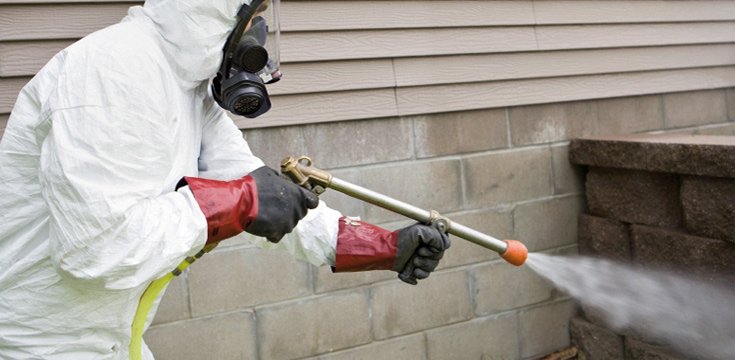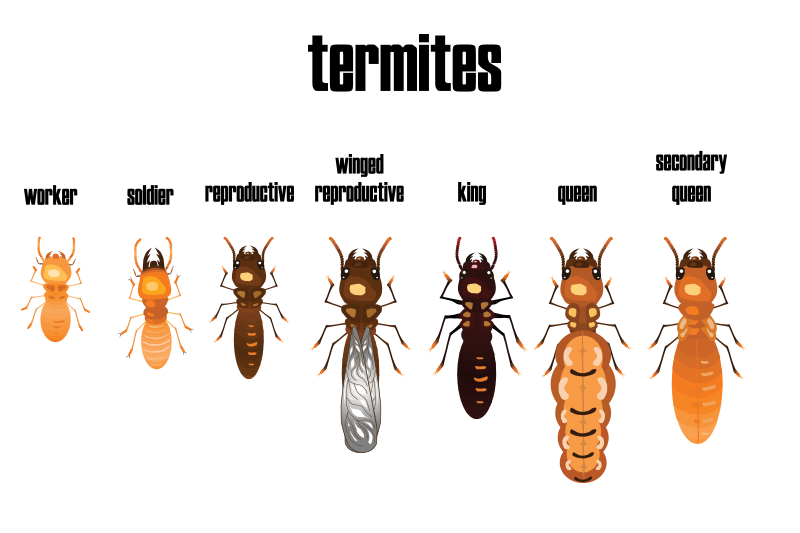Full Ant Control: Strategies and Services to Beat Ant Troubles
Full Ant Control: Strategies and Services to Beat Ant Troubles
Blog Article
Ecological Impact of Insect Control: Balancing Performance With Sustainability
The ecological impact of bug control is an essential issue that requires a delicate equilibrium in between achieving efficiency in guaranteeing and taking care of insects sustainability of our ecological communities. From the usage of unsafe chemicals that leak right into our dirt and water to the unplanned consequences on non-target varieties, the effects of conventional insect control practices are far-ranging.
Harmful Chemicals in Insect Control
The usage of dangerous chemicals in parasite control postures substantial ecological and health dangers that necessitate careful factor to consider and mitigation strategies. Pesticides, herbicides, and chemicals are commonly utilized to eliminate bugs, however their extensive application can cause unplanned effects. These chemicals can contaminate soil, water sources, and the air, influencing not just the targeted bugs but likewise beneficial insects, wild animals, and human beings.

To deal with these threats, integrated parasite management (IPM) methods are being promoted as a more lasting alternative. IPM includes a combination of approaches such as organic control, environment manipulation, and the targeted use of chemicals as a last option (ant control statesville nc). By taking on an alternative strategy to pest control, we can decrease the ecological and health and wellness effects connected with unsafe chemicals while efficiently taking care of pest populaces
Influence On Non-Target Species
Taking into consideration the unintended consequences of parasite control techniques, the effect on non-target species is a vital element that calls for thorough assessment. While bug control measures intend to target details bugs, other organisms in the ecological community might be accidentally influenced. Non-target species, including beneficial insects, birds, creatures, and also plants, can suffer direct or indirect harm from pesticide applications or organic control techniques.
Chemicals can have deadly or sub-lethal effects on non-target species. For example, insecticides designed to battle a specific bug parasite might harm pollinators like bees or all-natural killers such as ladybugs. Furthermore, chemical deposits can gather in the environment, affecting non-target microorganisms gradually. Similarly, biological control representatives, if not species-specific, can present threats to unplanned targets, interrupting the environmental balance.
To reduce the influence on non-target species, incorporated insect management (IPM) approaches that highlight a holistic approach to pest control are recommended. These approaches prioritize making use of eco friendly techniques, minimizing damage to valuable microorganisms while efficiently handling pest populations. Carrying out comprehensive danger assessments and keeping an eye on the results of parasite control efforts are important action in safeguarding non-target varieties and promoting overall ecosystem health and wellness.
Dirt and Water Contamination
Unintended ecological effects of pest control methods prolong beyond influencing non-target types, with considerable ramifications for soil and water contamination. Chemicals, herbicides, and chemical plant foods utilized in pest control can seep into the soil and infect groundwater, posturing a risk to both water and earthbound communities. Dirt contamination can interfere with the equilibrium of microorganisms essential for vitamins and mineral biking and plant growth, causing lowered soil fertility and performance. These chemicals can linger in the environment for prolonged durations, building up in the soil and potentially going into the food chain.
Water contamination is another important issue connected with parasite control methods. To mitigate dirt and water contamination from bug control tasks, incorporated parasite management strategies that prioritize sustainability and minimize chemical inputs are critical.
Air Air Pollution From Pesticide Use
Exposure to airborne pesticides throughout farming applications presents a considerable concern for air contamination control procedures. In addition, chemical drift, where chemicals are lugged by the wind to unplanned locations, can lead to the contamination of nearby ecosystems and water bodies.

Methods for Sustainable Insect Control
In the realm of agricultural methods, executing lasting parasite control techniques is critical for keeping environmental balance and protecting plant yields. Lasting bug control highlights using eco-friendly approaches to take care of insect populaces effectively while lessening harm to non-target microorganisms and ecological communities. Integrated Pest Monitoring (IPM) is an extensively adopted method that integrates organic, social, physical, and chemical control approaches to achieve lasting parasite administration remedies.
Plant turning and diversity are likewise efficient strategies to interrupt pest life cycles and develop less desirable conditions for parasites to thrive. Ultimately, by integrating these sustainable parasite control approaches, farmers can achieve an equilibrium in between pest management effectiveness and environmental stewardship.
Verdict
In final thought, the ecological effect of bug control approaches have to be thoroughly thought about to stabilize effectiveness with sustainability. Damaging chemicals made use of in pest control can result in soil and water contamination, air contamination, and injury non-target varieties - termite control. It is critical to carry out lasting parasite control methods to decrease these adverse results on the environment and promote a much healthier ecological community for future generations
By taking on a holistic strategy to pest control, we can minimize the ecological and wellness impacts connected with unsafe chemicals while effectively handling pest populations.

To reduce the air pollution created by chemical use, it is necessary to embrace integrated pest management approaches that prioritize the usage of non-chemical insect control techniques, such as plant rotation, natural predators, and resistant plant ranges. Sustainable parasite control stresses the use of environmentally friendly techniques to take care of insect populations effectively while decreasing injury to non-target organisms and environments. Integrated Parasite Monitoring (IPM) is an extensively adopted strategy that incorporates biological, cultural, physical, and chemical control approaches to accomplish long-term insect management remedies.
Report this page